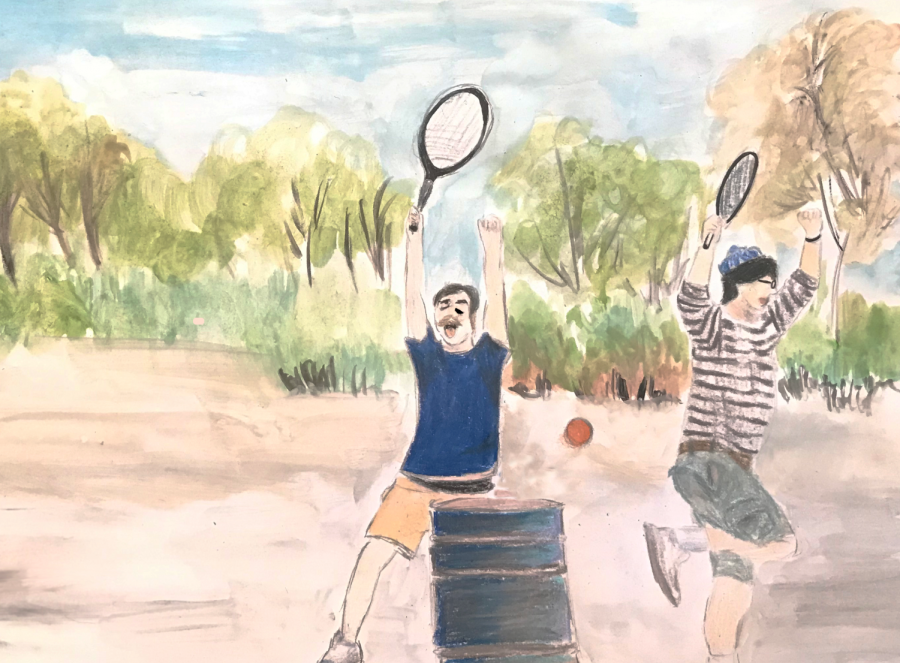“Paddleton” tugs at the heart yet remains uninteresting
March 29, 2019
When a large mass and several lesions are found on his CT scan, all Michael can muster is an “it’s okay.” After watching “Paddleton,” all I could muster was “it’s okay.” “Paddleton” chronicles the tumultuous relationship between Michael and Andy, neighbors-turned-friends who undergo various emotions when Michael is diagnosed with terminal cancer. The film is dull and relatively boring until the last 15 minutes, when it suddenly delivers a thought-provoking and heartfelt scene about the reality of a devastating loss.
As Michael becomes more ill and asks Andy to help him end his life with assisted suicide, their relationship becomes tense. “Paddleton” barely focuses on Michael’s medical needs after his terminal cancer diagnosis, or the emotional impact of his decision to receive assisted suicide. Thus, the film inaccurately portrays the lives of those who are actually given such a prognosis, and barely even addresses the grave nature of Michael’s prognosis. He seems to be in no pain, with no serious side effects other than some febrile symptoms toward the end.
Michael and Andy stigmatize the subjects of terminal illness and assisted suicide, causing any discussion they do have regarding those subjects to be lacking. “Paddleton” avoids addressing the topics of terminal cancer and death, and deflects the topic of Andy’s anxiety about Michael’s choice to receive assisted suicide with morbid humor regarding Michael’s dying state. It was extremely frustrating to watch two men, who obviously had so much to say to each other regarding Michael’s prognosis and health, talk around the topic. On multiple occasions, Andy opens his mouth, on the verge of saying something to Michael, but although it seems so obvious that Andy has closeted opinions regarding Michael’s choice to receive assisted suicide, he remains silent. On one occasion, Andy even takes it upon himself to buy a safe to lock Michael’s death-inducing pills in, and refuses to give Michael the combination to open the safe, wordlessly yet effectively revealing his feelings toward assisted suicide.
“Paddleton” places strong emphasis on character development, as Michael and Andy are really the only two people seen on the screen for a majority of the film. Although I enjoyed getting to know the characters and their personalities, the lack of characters other than Michael and Andy made for an extremely bland plot. The film was also repetitive: Michael and Andy watch the same kung fu movie over and over again, drive a lot, lounge on their sofas with burnt pizza in their hands and play Paddleton, a game involving hitting a ball against the wall with a tennis racket to land it into a barrel. There is not much change in setting, thus, you would have to be attached to the characters to watch until the end, which is tear-jerking, thought-provoking and real. As Michael consumes a mixture that will kill him, he experiences the pain and side effects of the concoction, and there is finally heartfelt and vulnerable emotion. Andy attempts to comfort Michael as he shakes violently, having what appears to be a panic attack.
As Michael lays dying, Andy tells Michael “I love you,” which, given their rather bland personalities throughout the movie, expresses that the two may have more complex emotions than what is seen on the surface. “Paddleton” may have its faults, such as inaccurate medical portrayals and lack of plot development, but ultimately, the film does portray a beautiful relationship between two friends, who, even in the face of adversity, transcend the typical movie friendship.



































































